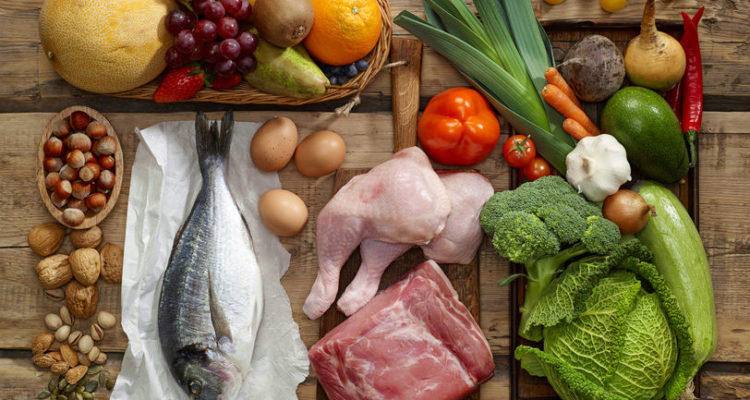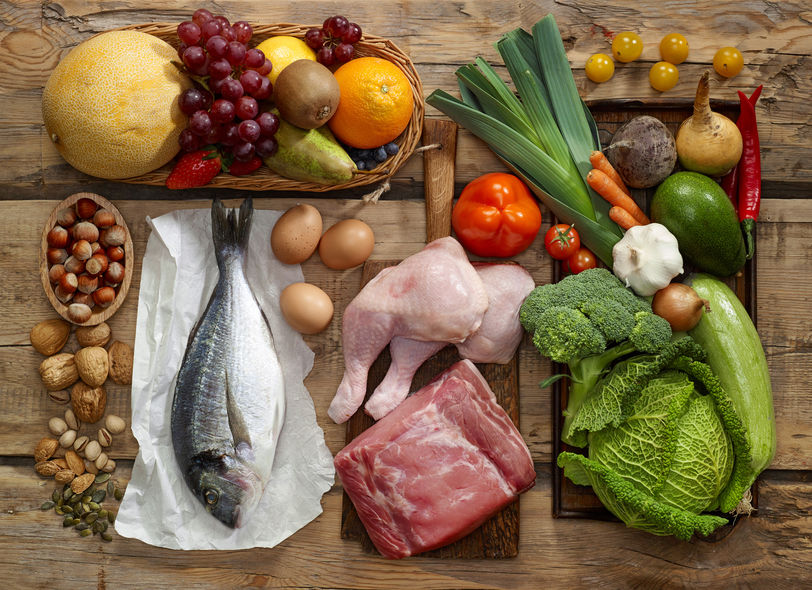If you follow any trends, you’ve probably noticed that diets are a part of them. This year everything on the health food store shelves say they are “paleo-friendly.” Last year another handful of celebrities declared that they were thriving and well on their plant-based diet. In the world of a perceived conflict between plant-based vs. paleo diet, where do you stand with the trendy diets?
To clarify, lets review briefly what both diets entail.
Paleo Diet Overview
Paleo is a diet based on the types of foods presumed to have been hunted, gathered and eaten by our early ancestors, consisting mainly of meat, fish, vegetables, and fruit, while excluding dairy, grain/legume products and processed foods. This means a diet radically different than what most of us consume in our country. It eliminates most (if not all) packaged, snack, convenience, and junk foods.
Those who are able to take on the paleo diet have noticed positive changes to their health such as (but not limited to) weight loss, reduction in chronic pain, increased energy, digestive regularity, hormone regulation, a feeling of satiety from the higher intake of protein and fats, and possibly healing and/or preventing from chronic diseases. Even though most of us do not hunt for our food as our ancestors did, those following the paleo diet put much emphasis on eating the highest quality of foods whenever possible, since they are as close to what foods used to be. This means humanely and properly raised pastured animals and organic, locally grown produce. It’s encouraged to join a local farm and/or animal share to obtain these higher quality foods at an affordable cost.
Due to the extreme elimination of foods that we are all too familiar (and in love) with, you can find plenty of “paleo” treat recipes online, but that are not always the healthiest. Also, companies are now marketing their packaged foods as “paleo” which is great for convenience, but kind of negates the true essence of the diet which is just to eat whole, natural foods. This tends to be a very clean diet but is sometimes difficult to maintain strictly longterm, especially when others in your household do not follow the same diet. Those who have done well with this diet and have experienced profound results usually stick to a paleo-ish diet for the longterm that works for them.
Plant-Based Diet Facts
On the flip side, a plant-based diet is one that is based on fruits, vegetables, whole grains and legumes. It excludes meat (including chicken and fish), dairy products, eggs and oils. Similar to the paleo diet, highly refined foods (like bleached flour and refined sugar) are avoided and an emphasis on fresh, organic, locally grown produce. A diet rich in fresh fruits and vegetables floods the body with vitamins, minerals and nutrients. Since the standard American diet (also known as the SAD diet) is deficient in fruits and vegetables (more so vegetables), this can be a benefit for most people. A plant-based diet can be detoxifying by refreshing tired cells and moving along a sluggish digestive system. This results in (but is not limited to) clearer, brighter skin, increased energy, digestive regularity and possibly healing and/or preventing cancer and other chronic diseases.
Companies have also used this as an opportunity to market “vegan” products on the shelves that may be highly processed. Many of the fake meat/cheese products contain soy or corn (sometimes that are genetically modified) or even meat substitutes such as TVP (textured vegetable protein) or seitan, which are not the healthiest of options.
Those following a plant-based diet are recommended to supplement in certain areas since they cannot obtain specific vitamins/minerals/nutrients through foods. While a plant-based diet may be great for some, following it long term may lead to deficiencies, issues with overeating (due to lack of satiation from fat and protein), possible weight gain, inflammation over time, and thyroid or hormone-related issues (due to high soy consumption).
Plant-Based Vs. Paleo Diet: Test What’s Right For You
As you can see, there are perks and quirks to both the paleo and plant-based diet. Heck, there are perks and quirks to every diet…because it’s a DIET. Someone who may experience pure bliss on a plant-based diet may have the complete opposite effect when put on a paleo diet and vice versa. But can there be a happy medium?
I like to encourage my clients to research the diets that they’re interested in. Experiment with different aspects of that particular diet without going full force. For example, for a month, try reducing or eliminating grains from your diet to see how you feel. Or, add 2-3 days of your week where you only enjoy plant-based meals. Instead of defining the way you eat by a label with stressful rules, embrace aspects of perhaps both the paleo diet and plant-based diet and create your own! Think about the things you like about each diet and factor those things into your meals and lifestyle. Try adding in or eliminating foods and notice how your body responds. Allow your body’s response to lead you to design the right diet for you, not the trends!




